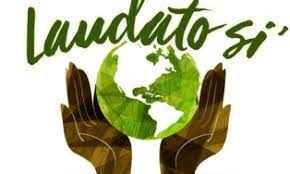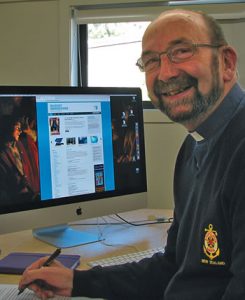Laudato Si’ Special Anniversary Year
In New Zealand, we throw out 15.5 million tonnes of waste each year1, which amounts to 3,200 kilograms for each of us! On 1 January 2018, the world’s biggest recycler, China, closed its country to other countries’ waste2, saying that what was coming in was too contaminated. Partly as a result of China’s action, only 28% of the material that goes into recycling bins and bags in NZ is recycled. In other words, 72% of the recycling picked up at our gates, about 252,000 tonnes a year, goes to landfill.
And towards the end of April this year, Stuff carried an article about microplastics in teabags which would put anyone off using them. Research at McGill University (Montreal) had discovered that “steeping a single plastic tea bag at brewing temperature (95degC) releases around 11.6 billion microplastics and 3.1 billion nano plastics into a single cup”.3 The same article revealed 93 per cent of all brands of bottled water tested showed significant levels of microplastic contamination.
It is easy to get downhearted when you think about the deteriorating state of the environment and when you see the mess of plastic in waterways and in the ocean – 7¼ million tonnes of plastic waste enters the ocean every year.4 In the face of environmental catastrophe, there is a sense of powerlessness. And yet, we are not powerless, and we have a responsibility to act.
In his message for World Environment Day, 5 June 2020, Pope Francis wrote, “This is not a time to continue looking the other way, indifferent to the signs that our planet is being plundered and violated by greed for profit, very often in the name of progress”.
In Laudato Si’, Pope Francis challenges us to pay due attention to the “cry of the earth and the cry of the poor” (LS 49), and he asks, “What kind of world do we want to leave to those who come after us, to children who are now growing up”? (LS 160).
The Dicastery for Promoting Integral Human Development sounded an upbeat note of confident hope as it launched the Laudato Si’ anniversary year (see page 7). With the world in the throes of the Covid-19 global pandemic, the Dicastery said that Laudato Si’ provides “a moral and spiritual compass for the journey to create a more caring, fraternal, peaceful and sustainable world. … a unique opportunity to transform the present groaning and travail into the birth pangs of a new way of living together bonded together in love, compassion and solidarity, and a more harmonious relationship with the natural world, our common home”.
The Laudato Si’ ‘Action Platform’ aims “to make communities around the world totally sustainable in the spirit of the integral ecology of Laudato Si’ ”. Seven various institutions – families, dioceses and parishes, schools, universities and colleges, hospitals and health care centres, businesses and farms and religious orders and provinces -- are encouraged to begin a seven-year journey to ‘total sustainability’ and ‘integral ecology’.
It’s not all doom and gloom. Here are a few good news items and suggestions to do with caring for our planet:
1. Sweden is so good at recycling that, for several years, it has imported rubbish from other countries to keep its recycling plants going. Only 1 per cent of Swedish household waste was sent to landfill in 2017.5
2. The Alliance to End Plastic Waste 6 is enabling the clean-up of the Ganges River, which is more than 2,600 km long, and its tributaries.
3. We can place soft plastic bags – such as bread bags, frozen food bags and the plastic our newspaper arrives in – in bins at many supermarkets. The bags are recycled by such firms as Future Post 7 into fence posts.
4. The ‘cardboard’ cup provided by your barista cannot be recycled because it is lined with a fine plastic film to make it waterproof. Every takeaway coffee cup you have ever used is scrunched up somewhere, disintegrating slowly into microplastics in a landfill or the sea. We can choose to take re-usable cups with us when buying coffee.
5. Our tap water in NZ is excellent for drinking, so there’s no need to buy bottled water, which means that we will release fewer microplastic particles into the environment.
Laudato Si’ Year encourages us to express our thanks to God for the wonders of creation. Our prayers of thanksgiving have meaning only if we do what we can to preserve and enhance creation’s beauty.5
1 recycle.co.nz
2 The Guardian, 2 January 2018
3 Brianne West, Stuff, 25.04.20
4 endplasticwaste.org
5 ejinsight, 12 July 2019
6 endplasticwaste.org
7 futurepost.co.nz

 Entries(RSS)
Entries(RSS)
Love this information and focus on healthy nature.